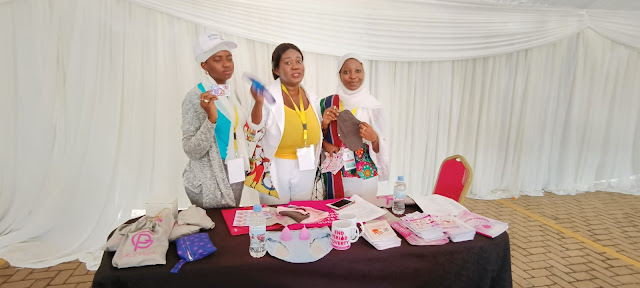Ladies Without Plastic - Green Mestruation. Environmental challenge by Sofonie Dala, Angola. Webisode 8
Our Africa Educates her Campaign season 5 is on going
Green Menstruation - Webisode 8
Good evening ladies and gentlemen,
Welcome to the eighth day of our environmental challenge Women Without Plastic - Key to reduce our carbon footprints!
Girls’ education can strengthen climate strategies in three ways: by empowering girls and advancing her reproductive health and rights, fostering girls’ climate leadership and pro-environmental decision-making, and developing girls’ green skills for green jobs.
Isabel Marques is our guest today, she will share a little about her hygiene preferences, and she will know the consequences of her choices.
Good morning lady!
Good Morning.
What's your name?
My name is Isabel Marques.
How old are you?
I am 28 years old.
Okay. Which of these pads do you use?
I use the disposable.
Why do you prefer this one?
Because I like it more.
Have you ever used the reusable absorbent?
No, never used it.
Wouldn't you like to try it?
I don't know, I never thought about that.
Did you know that this disposable pad contains plastics that harm the environment causing global warming?
No, I didn't know that.
For this reason, we recommend using the washable absorbent.
Okay, I'll try using the cloth pad, let's see what happens.
Well-educated girls and women have been identified as a powerful part of the solution to the climate change problem. By educating girls, you empower them to be women leaders in their families, communities, and nations “who really understand the context and the challenge.
Countries with a lower rate of girls’ education like Angola, also have higher rates of deaths and illness of women and girls in weather-related disasters. In contrast,
Countries with more women in government also more likely to adopt climate protection policies. Providing girls with green skills enables adaptation to a world impacted by climate change as well as a changing world of work.


Comments
Post a Comment